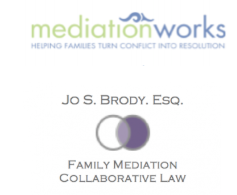“The stream of thinking has enormous momentum that can easily drag you along with it. Every thought pretends that it matters so much. The human mind, in its desire to know, understand, and control, mistakes its opinions and viewpoints for the truth. It says: this is how it is. You have to be larger than thought to realize that however you interpret "your life" or someone else's life or behavior, however you judge any situation, it is no more than a viewpoint, one of many possible perspectives. It is no more than a bundle of thoughts. But reality is one unified whole, in which all things are interwoven, where nothing exists in and by itself.” - Eckhart Tolle
Growing Happiness
"Sometimes the smallest things take up the most room in your heart." - Winnie the Pooh
The new science of "Happiness" is proving that we can grow our own happiness. By taking just a few minutes each day to focus on the good, we can cultivate positive feelings. Just like practicing the violin or hitting the tennis ball, with repetition and practice we can get better at focusing on the good in our lives, which by its very nature, allows less time to focus on the bad. Here are a few simple ways to grow your own happiness:
(1) Pay attention to simple pleasures. Drinking a cup of tea, walking your dog or hugging a child can be incredibly joyful experiences if you take the time to notice how good they actually feel. Take time out every day to slow down and place your full attention on something that feels good. It takes less time than going to the gym or preparing a healthy meal, yet it will greatly increase your overall feeling of wellbeing.
(2) Watch the sunset. Study after study shows that immersing yourself in nature will increase your happiness. Breathe in fresh air, look at the majestic, old trees around you or watch the magical colors in the sky. Just a few minutes each day spent outside, appreciating the beauty and the awe of nature will greatly increase your daily dose of happiness.
(3) Focus on those you love. If you spend a few minutes each day thinking about someone you love, you can actually feel love. As you hold that person in your attention and send them love and well wishes, you can begin to notice how that feels -- and it feels good. Then, simply allow yourself to feel a bit of gratitude for having that person in your life.
(4) Send yourself love. Often, we are our harshest critic, and sending ourselves love can be challenging. Try spending a little time each day to self-reflect on what you did well, and not what you did wrong or didn't do at all. Try looking in the mirror and notice what you like, rather than what you don't like. Remind yourself each day that you are doing your best, and that is good enough. Simply notice how good it feels to send a little love your own way. Remember, “You yourself, as much as anybody in the entire universe deserve your love and affection.”
Each day is a brand new day full of opportunities to learn, to experience the world and to connect with yourself and with the world around you. Take a little time to grow and nurture your own happiness and see how that joy will grow and will spread to those around you.
Weekly Wisdom #58
"Sometimes the smallest things take up the most room in your heart." - Winnie the Pooh
Weekly Wisdom #57
“The best way out is always through.”
- Robert Frost
On we go!
Tips for Transitioning Back to School
Say Hello to stress. As the school season begins, many parents find themselves scrambling to get back to their fall routines. Cheryl Brause, a mindfulness and meditation instructor, mom of three and owner of 2bpresent in Larchmont, offers the following tips to ease into your September .
- Organize! Much of our stress comes from worrying about not being prepared; take those thoughts out of your mind by getting ready early.
- Get some Z's . Go to bed at the same time each night and take all electronics out of the bedroom. A regular routine that helps you unwind, relax your body and your mind is critical to your health and well-being, allowing you to get the rest you need.
- Unplug. Ever had a computer that's on the fritz? Thinking there's a major problem, you call a computer specialist and ask what to do. Rather than get a whole new computer, they tell you to unplug it and let it rest. Amazingly, this little reboot, resolves all your computer’s problems. Just like our computers, our brains need to rest and reboot. Enjoy simple pleasures like taking a walk, a bike ride or playing with a pet (without your phone in hand). Research shows that unplugging just a few minutes each day can help lower stress and increase you daily does of happiness.
- Stop negative thoughts. When you find yourself being self-critical, stop that negative thought train in its tracks by taking a nice deep breath. Repeat to yourself that you are good enough, you are perfect exactly as you are and you have the strength to conquer any challenges that lie ahead.
- Breathe. Nothing is healthier than learning to connect to your breath. When you're feeling stressed about the upcoming school year, take a slow, deep inhale, feel the air in your body and clear your mind of any stressful thoughts by focusing your attention on how it feels to simply breathe. Remind yourself that you are here and you are fine.
This article appeared in the Mamaroneck Daily Voice, written by Jeanne Muchnick
On We Go! Mindfulness at University of Pennsylvania School of Law, Lakeland School District, Rye Neck, Mamaroneck School District and more!
We are thrilled to be teaching mindfulness in and around the New York Area. Here are a few of the places where 2bpresent will be teaching mindfulness this Fall . . .
August 31, 2016 – Lakeland School District Mindfulness Training  – Cheryl will be leading a half-day mindfulness training for the Superintendents and Administrators of Lakeland School District This interactive workshop will give educators an introduction to mindfulness, the science behind it and how mindfulness is being used in schools and in classrooms to help children and teachers strengthen intra and inter personal skills, foster better coping mechanisms and offer students life-long tools to promote their health and wellness. We will also discuss disticit-wide initiatives and programming for developing mindful programs district-wide.
– Cheryl will be leading a half-day mindfulness training for the Superintendents and Administrators of Lakeland School District This interactive workshop will give educators an introduction to mindfulness, the science behind it and how mindfulness is being used in schools and in classrooms to help children and teachers strengthen intra and inter personal skills, foster better coping mechanisms and offer students life-long tools to promote their health and wellness. We will also discuss disticit-wide initiatives and programming for developing mindful programs district-wide.
 September 2, 2016 – Rye Neck High School Mindfulness Teacher Training. Cheryl is pleased to be working with teachers, parents, students and administrators at Rye Neck Schools to develop a ditrict-wide initiative to bring mindfulness to the Rye Neck Schools. We begin this year with a in-depth teacher training before the start of the school year. Cheryl is thrilled to be working with dedicated teachers, staff, parents and students throughout the school year to bring mindfulness programs and initiatives that will help promote healthy habits of the mind, which include lowering stress and anxiety, sharpening focus and attention, and improving overall health and wellbeing.
September 2, 2016 – Rye Neck High School Mindfulness Teacher Training. Cheryl is pleased to be working with teachers, parents, students and administrators at Rye Neck Schools to develop a ditrict-wide initiative to bring mindfulness to the Rye Neck Schools. We begin this year with a in-depth teacher training before the start of the school year. Cheryl is thrilled to be working with dedicated teachers, staff, parents and students throughout the school year to bring mindfulness programs and initiatives that will help promote healthy habits of the mind, which include lowering stress and anxiety, sharpening focus and attention, and improving overall health and wellbeing.

October 27, 2016 - University of Pennsylvania Law School - Cheryl is excited to be teaching a class at the University of Pennsylvania School of Law with Family Mediation, LLP entitled Mindfulness and Mediation. In all situations, but particularly helpful when working in conflict resolution, we can learn to become more aware of our own inner experiences and learn how to use our inner world to benefit our clients and create a more constructive process. In this interactive class for law students, we will learn and experience tools of self-awareness and self-reflection, which can help us pay attention to our own emotions, thoughts and judgments. Skillfully working with both our internal and external worlds, we can learn to best navigate each situation, be fully present with our clients and help parties determine their best course of action.

Keep Calm & Carry On at Mamaroneck High School. Cheryl is looking forward to continuing her work this year conducting workshops and grade-wide assemblies for high school students in the 2016-2017 school year. As teens are facing greater demands on their time and attention than ever before, they have very little time to take a much-needed "brain break" during their busy week and simply breathe. Cheryl is thrilled to be back at MHS leading classes and workshops to teach mindfulness tools to help teens lower their levels of stress, increase their focus and attention, and improve their overall health and wellbeing so they can thrive.
June 6, 2016 – Family & Divorce Mediation Council of Greater New
 York – Cheryl will be the guest speaker at the FDMC Continuing Education Series and presenting a workshop on mindfulness as a powerful tool in both our personal and professional lives to relieve stress, focus attention, and be more compassionate to ourselves and to others. We will also discuss the benefits of mindfulness when working in dispute resolution.
York – Cheryl will be the guest speaker at the FDMC Continuing Education Series and presenting a workshop on mindfulness as a powerful tool in both our personal and professional lives to relieve stress, focus attention, and be more compassionate to ourselves and to others. We will also discuss the benefits of mindfulness when working in dispute resolution.
 Starting May 11thh - Keep Calm & Carry On! - Mamaroneck High School Lunchtime Mindfulness Series. Teens are facing greater demands on their time and attention than ever before. They have very little time to take a much-needed "brain break" during their busy week and simply breathe. Cheryl is thrilled to be back at MHS leading a free lunchtime workshop for any teen wanting to find a little time in their day to simply breathe and learn mindfulness tools to help them lower their levels of stress, increase their focus and attention, and add a little joy to their day.
Starting May 11thh - Keep Calm & Carry On! - Mamaroneck High School Lunchtime Mindfulness Series. Teens are facing greater demands on their time and attention than ever before. They have very little time to take a much-needed "brain break" during their busy week and simply breathe. Cheryl is thrilled to be back at MHS leading a free lunchtime workshop for any teen wanting to find a little time in their day to simply breathe and learn mindfulness tools to help them lower their levels of stress, increase their focus and attention, and add a little joy to their day.
 May 23, 2016 – Ardsley High School. Cheryl is pleased to be the guest
speaker at Ardsley High
school where she will present an interactive workshop for parents and students on The Benefits of Mindfulness: How Parents and Teens can Use Mindfulness to Cope with Stress.
May 23, 2016 – Ardsley High School. Cheryl is pleased to be the guest
speaker at Ardsley High
school where she will present an interactive workshop for parents and students on The Benefits of Mindfulness: How Parents and Teens can Use Mindfulness to Cope with Stress.
April 21, 2016 – Lakeland School District Superintendent’s  Conference Day – Cheryl and her colleagues will be conducting mindfulness teacher trainings for 200 teachers from grades K-12. These interactive half-day workshops will give teachers an introduction to mindfulness, personal practice in mindfulness, as well as an overview of the science behind these practices and how mindfulness is being used in schools and in classrooms to help children thrive.
Conference Day – Cheryl and her colleagues will be conducting mindfulness teacher trainings for 200 teachers from grades K-12. These interactive half-day workshops will give teachers an introduction to mindfulness, personal practice in mindfulness, as well as an overview of the science behind these practices and how mindfulness is being used in schools and in classrooms to help children thrive.

April 4, 2016 – Rye Neck High School. Cheryl is pleased to be the guest speaker at Rye Neck High school where she will present an interactive workshop for parents on The Benefits of Mindfulness: How Parents can Use Mindfulness to Help Their Teens Cope with Stress. Mindfulness: The word is everywhere, but what does it actually mean? What are the benefits of Mindfulness? How can we use Mindfulness to lessen anxiety, lower stress, sharpen our focus and attention and improve our overall health? How can we use Mindfulness as parents to help our children thrive? In this interactive presentation, we will explore the growing body of scientific evidence from the fields of mindfulness, neuroscience and positive psychology that show how mindfulness can help increase our focus and attention, lower our levels of stress and anxiety, and create more opportunities to add happiness to our days. Cheryl will also share practical tools for parents on how to use mindfulness to help our teens relax, navigate the stresses of school and social pressures, as well as cultivate a greater sense of happiness, inner resilience and optimism.

March 2, 2016 – Hillside Elementary School, Hastings-on-Hudson, New York. Cheryl will be speaking to the teachers and staff about the Benefits of Mindfulness in Education and How to Incorporate Mindfulness into the Elementary School Day.
MEDIATION MEDITATION
MEDITATION
January – April 2016 – Cheryl will continue this series leading workshops on Meditation for Mediators, in which we explore ways to lower our levels of stress, focus our concentration and be more compassionate to ourselves and to others through mindfulness meditation practices. We learn how mindfulness can be a powerful tool in both our personal and professional lives. This is a continuation of series in which we explore the benefits of mindfulness meditation for mediators and those working with dispute resolution.
 January – May 2016 – Murray Avenue School – Cheryl conducts full-day Mindfulness Curriculum Teacher Training workshops once a month to work with teachers on mindfulness curricula and best practices to integrate mindfulness into their school days. Cheryl also presented a workshop for the Teacher Aides on Mindfulness in the Classroom.
January – May 2016 – Murray Avenue School – Cheryl conducts full-day Mindfulness Curriculum Teacher Training workshops once a month to work with teachers on mindfulness curricula and best practices to integrate mindfulness into their school days. Cheryl also presented a workshop for the Teacher Aides on Mindfulness in the Classroom.
.
To learn more about 2bpresent's programs, contact us at info@2bpresent.com
Weekly Wisdom #56
"All of humanity's problems stem from man's inability to sit quietly in a room alone."- Blaise Pascal
Weekly Wisdom #55
"Don't underestimate the value of doing nothing, of just going along, listening to all the things you can't hear, and not bothering." - Winne the Pooh
What are all those thoughts in my head??
When I asked a group of children recently what they thought mindfulness meant, one young girl replied, “It means that our minds are full.” I then asked, “What are your minds full of?” She replied, “Thoughts. Lots of thoughts. I always have thoughts running around my head.” The other children in the class agreed. Intrigued, I asked, “What are the thoughts you have running around in your head?” One by one they answered. “Worries. I am always worrying,” said one boy as others nodded their heads in agreement. “I am always thinking about all the homework I have and about how I am going to get it all done,” said a wide-eyed girl with a look of frustration on her face. “Me too!” said her neighbor on the carpet. What occupies your mind?
When we take a good look at what occupies our minds, we start to notice that much of what we are thinking about is not actually happening right now. Most of our mental gymnastics involve thoughts about what has already happened or thoughts (and worries) about what might happen. Studies have shown that we spend at least fifty percent of our time thinking about things that are not actually happening at all, and most of those thoughts are unpleasant. In addition, we often tell ourselves stories about what is happening that simply are not true.
An example . . . we text a friend and she does not respond. While waiting for her response, we begin to worry. She always answers quickly, we think. Why hasn't she responded? Is she OK? Should I call a friend to check on her? Was there something I did to offend her? Is she mad at me? What could I have possibly done? Then, we plan what we will say when she finally does call. We spend time and energy creating stories in our minds, and creating nervousness and anxiety that we can feel in our bodies. Finally, a response. She is fine. Her phone had died.
Despite the children's confusion between “mind fullness” and “mindfulness,” the word mindfulness really means awareness. The goal of mindfulness is not to get rid of thoughts. We are human and humans have thoughts. In fact, many thoughts can be quite helpful, necessary and pleasant. We need to plan, to create, to organize. The evolution of our ability to think has helped us evolve and adapt to our environment and to survive. However, the evolution of our thoughts may have evolved to a point of becoming unhelpful and even detrimental to our wellbeing.
Can our thoughts actually make us sick?
The beauty of mindfulness is that it helps us become aware of our thoughts and begin to recognize our thoughts for what they are - just thoughts. Without this awareness, we consider our thoughts to be facts, they become our reality. We even identify personally with our thoughts and think we are our thoughts. We often get so caught up in our thoughts, overwhelmed by them, believing them to be true, that we suffer the physiological consequences often caused by our thoughts, chronic stress and anxiety, and all of the serious, negative effects stress has on our bodies, which can literally make us sick. The amazing thing to realize is that thoughts are not real and the stress that often accompanies them is unnecessary.
Thoughts are just thoughts. You don't have to believe them.
Mindfulness helps us create a space between our thoughts and ourselves. We can begin to see our thoughts for what they are – just thoughts – not who we are and not what is actually happening. This awareness helps us to stop putting ourselves through an imaginary obstacle course in our minds. We can begin to quiet the noise in our heads, no longer feeling overwhelmed by all those thoughts.
Many who begin to practice mindfulness meditation try to silence their thoughts and quickly realize that this is a futile exercise. Thoughts just arise. The more we try to stop them, the more frustrated we get. Instead, in mindfulness practices we learn to simply observe our thoughts as they come and go, and not allow our thoughts to take over.
Our thoughts are just a lens through which we see the world. They are the product of our life experiences. We can begin to understand that we don’t see things as they are; we see things as we are. Once we recognize this, we are free from the power our thoughts have over us. We can observe our thoughts and better understand which thoughts are helpful and which thoughts do not serve any useful purpose. Only then can we truly free ourselves from our thoughts. We simply learn to observe them.
Listen to your thoughts, but don't take them so seriously.
It is incredibly liberating and freeing to recognize that in every moment of every day we have a choice. We can choose how we wish to see the world. By taking a step back and simply observing what is going on in our minds, we can begin to detach from the grip of our thoughts. We can see our thoughts, but we no longer have to believe them. Then, we become more aware of what is actually happening, as it is happening, and be more present for it.
Try this at home: Mindfulness of Thoughts
Take a few minutes during your day and begin to notice your thoughts. Here is how:
- Ask yourself, "What am I thinking about?"
- Once you begin to notice your thoughts, try labeling them: planning, worrying, organizing, day dreaming, judging, etc.
- Then, ask yourself, "Is this actually happening right now?" Begin to notice throughout your day when you are fully present with what is actually happening and when your mind takes you somewhere else. The first step in raising your awareness and becoming more present is to begin noticing your mental habits. Notice when your mind drifts off in thought, taking you into the past or the future.
- Don't judge yourself or label your thoughts as good or bad. Instead, just be curious and more self-aware.
Top 10 Reasons to Meditate
In the latest edition of Mindful Magazine, they list the top 10 reasons to meditate. 'The benefits of a meditation practice are no secret. The practice is often touted as a habit of highly successful (and happy) people, recommended as a means of coping with stress and anxiety, and praised as the next-big-thing in mainstream wellness. And it’s not just anecdotal. Thousands of studies have shown the positive impact that meditating has on our health and well-being." Mindful culled through the list and here are the highlights along with the research to back them up. To read the full article and link to the research, click HERE.
Sleep Better: More Shut-Eye at Night Means Brighter Days
Stress Less: Make Room for More Happiness
More Mindful Meals: No More Stress Eating
Beat Anxiety: Send Worries Packing
Smile More: A Happy Pill, with No Side Effects
Enhance Your Love Life: Your Relationship Will Thank You
Lead a Successful Life: A Clear Path to Achieving Your Goals
Weekly Wisdom #54
"Love and compassion are necessities, not luxuries. Without them humanity cannot survive." - Dalai Lama
How Meditation Changes the Brain and the Body
Weekly Wisdom #53

Finding Happiness
What do we really want for our children? Most parents answer this by saying that ultimately we want our children to be happy. I wonder, are we really doing a good job at helping them find their happiness? What is standing in their way? Several recent studies confirm what many of us already knew, that children today are experiencing alarmingly high rates of depression and anxiety. Nearly a quarter of children in the United States are showing signs of emotional distress, such as depression, anxiety, eating disorders, and substance abuse. Anxiety and depression are now the most common mental health diagnoses among college students. Even more alarming is that suicide rates among adolescents is on the rise and is now the third largest cause of death in the United States among youth ages 10-24.
It seems our children are finding it more and more difficult to navigate the challenges of growing up in our changing world. As schools, colleges and therapists examine how to help children thrive, What can we do as parents to help our children find happiness?
Where to Find Happiness
Mindfulness is all about awareness. Mindful awareness helps us better understand ourselves and better relate to others. As a parent, often the messages we think we are sending to our children are not the messages they are hearing. Perhaps we need to reexamine the messages that we are sending our children or become more aware of the messages they are getting. Our attempts to offer our children every opportunity to experience all that the world has to offer, more choices and more freedom, may have the unintended consequence of causing children increased stress and anxiety, a feeling of being overwhelmed. The message that our children may be getting is that there is a giant world out there, and somewhere out there lies their happiness, contentment and self worth, they just need go find it.
Is this the message we really want to send? It may sound reasonable enough, but I have to ask how many of us have gone out into the big world and found our happiness "out there" - in our jobs, in our accomplishments or in other people? Many studies have shown that the happiness we feel when achieving a particular goal is short lived. We quickly find ourselves having a new goal to achieve soon after the temporary satisfaction has worn off. We often get caught in the "if only" game, "if only I had . . ." or "if only he would . . ." or "I will be happy when . . . " Even studies of people who win the lottery show that lottery winners experience initial joy and then 6 months to a year later they have no fundamental change in their sense of well-being or overall happiness.
By striving to find happiness and success out in the world somewhere, we are teaching our children that their happines lies in their achievements and accomplishments, that their contentment can be found by getting somewhere else other than where they are now. If we are teaching our children that their happiness depends upon something outside of themselves and getting somewhere other than where they are, they will find that their happiness is always just outside their grasp. This is not the message that we want to send them and will only lead to a yearning to be somewhere else, and happiness will always be one step out of their reach.
Mindfulness teaches us to be exactly where we are (since it is the only place we will ever be) and to find contentment in this moment (since it the only moment we will ever have). We can learn to find joy exactly where we are, and in each step of our journey, with an open acceptance to whatever we find along our way - - no more waiting game, no more conditional happiness based on some outside circumstance. If our children can learn to be open and accepting of their experiences and of themselves, and learn to find some joy in each day along their journey, then they can find their happiness now. But, how do we teach our children this and what stands in our way?
A Challenging World to Be Present In
The world our children live in is vastly different than the world we grew up in and the messages they are getting are much different as well. With the click of a button, our children can access endless amounts of information and connect with anyone around the world. They can find answers to almost any question in a matter of seconds on their computer screens. They have virtually limitless opportunity to learn, to explore and to connect. They can reach out and be reached 24 hours a day, 7 days a week. As a result, they find it difficult and even uncomfortable to disconnect.
The world many of us grew up in was much different. It consisted of unstructured playtime, hours spent outdoors with friends before dinner, connecting only to the people we were actually with. If we missed a TV show, we were out of luck - - no DVR or On Demand viewing. If we got an assignment for school, we would have to look into our handy Encyclopedia Britannica to learn more, or make a trip to the library to search for information. We would have to actually WAIT to find answers, think creatively on how to find those answers, and get comfortable with not knowing. It was not that long ago, but it was a much different world than the one our children live in.
Clearly, this world of information and connectivity has tremendous benefits. It is also taking its toll on all of our lives, especially on the lives of our children who are growing up in this new digital age that is lightening fast and in the click of a button takes them away from where they are. Now, our children are "connecting" with people they are not actually with. Which leads me to ask, are they truly connecting at all? They measure themselves by how many likes or friends or followers they have. They can continuously view a steady stream of images to see what others are doing, instead of focusing on where they are and who they are with. This has created a new type of anxiety now commonly known as FOMO, the Fear of Missing Out. FOMO is the fear that others are having some rewarding or enriching experience that they are not having, causing them to feel compelled to constantly connect so that they will not miss out. Ironically, this fear leads to an obsession to staying connected which only leads to more apprehension and angst about all they are missing.
This new anxiety not only applies to what others are doing, it also can lead to the fear of not keeping up with the endless amount of information available online. With 24-hour-a-day access to information and communication, our productivity is limited only by the number of hours in the day. As a result, we all feel a tremendous sense of pressure to read more, learn more, do more, and connect more. There is simply never enough time in the day to do all that is possible to get done. We feel exhausted, rushed and overwhelmed. We mistake our desire or need to take a break or rest as laziness, or consider ourselves slackers when we are not consuming information. The continuous feed of information at our fingertips leaves us without the time or the ability to quiet our minds, to sit in the stillness and to ponder the mysteries and the possibilities of the unknown. It leaves us all with the constant buzzing of our devices and computers whispering to us to do more, learn more, be more. Our children are growing up in this world and feeling the anxiety that comes with it.
Albert Einstein once said, “Imagination is more important than knowledge. For knowledge is limited to all we now know and understand, while imagination embraces the entire world, and all there ever will be to know and understand.” But with the notion that more knowledge is available at all times on our computer screens or smartphones, we have little time or the inclination to be in the creative and innovative world of our own imagination. Our children don't know what it is like to ponder the possibilities that are limited only by their own imagination. They rarely experience how it feels to sit in a space of not knowing and to be OK with the discomfort and excitement of not having the answer. Instead, they learn to punch their keyboards and find someone else's answer which is much easier and faster to do. We need to help our children recognize the value of unplugging, the importance of silence, and the benefits of being present in the moment where they can experience their own imagination and creativity.
Helping Them Find Their Own Happiness
Instead of searching to find their happiness elsewhere, we need to encourage our children to look inward. In doing this, they can begin to realize that they can find happiness right now, and not when they get into a good college or get a good job or make a lot of money. Their passions are already there inside them, just waiting to be discovered, they just need to take the time to listen. We need to show them how to slow down and take time to get to know themselves, to connect inward so that they can find out what makes them happy. We need to help them feel more comfortable with themselves, to unplug in order to truly connect because the steady buzzing of the internet and the yearning for constant connectivity is actually drowning out their own inner voices and preventing them from hearing what is already there.
How can we do this? We not only can help them turn off their computers and devices for an hour or more each day, but we also need to help them slow down, find the value in being where they are, and take the opportunity to learn more about themselves and the world around them. They can find what makes them happy everyday, the simple pleasures of life which will always be there for them to enjoy in the days, weeks, and years of their lives. They can learn to spend a little time each day doing something they love like listening to music, reading a good book, taking a walk, opening the door for a stranger and become aware of how that makes them feel. We as parents need to value this time as time well spent. We can also help them by being quiet ourselves, by talking less and listening more, which helps us better understand them just as they are learning to better understand themselves. Finally, we need to understand that it is not the quantity of experiences or the number of things we give our children that will help them thrive, but is it simply being there for them and loving them unconditionally. That is enough.
This is no easy feat in a culture where people's worth is measured by how busy they are, or by how great their accomplishments are. It is a culture in which so many think they are not truly "alive" and productive unless they feel that addictive buzz of adrenaline brought on by stress. The best thing we can do for our children is buck the trend and recognize that this message of needing to be more, to do more and to have more is only leading to children who are increasingly stressed, anxious and depressed.
We need to be role models for our children and slow down ourselves, unplug and be more present with them and with our own inner world. What? Turn off my phone, you say? Impossible! I know it is difficult, but children know hypocrisy when they see it, and they know that when parents say one thing and do another, they don't really need to listen to what we say, and they will do what we do. Once we learn to slow down ourselves, we can help our children feel the benefit of discovering whatever it is that makes them happy, and the importance of adding a little bit of happiness to their day. More importantly, we allow them to be exactly who they are, as they are in this moment and show them they are enough, exactly as they are, and can find happiness in themselves right now.
By slowing down, we are giving our children the most important gift we can give them - - time. We can teach them that they don't need to be constantly moving to find themselves. It is much easier to find themselves by being still. In their quiet and stillness they can gain self-awareness and self-acceptance which will guide them toward their passions, spark creativity and help them find contentment and happiness in the simple pleasures of life. They will no longer value themselves through their successes and their failures, but can learn to use their experiences as a way of understanding themselves. They can discover the daily pleasures of life that will fulfill them and bring them a bit of happiness each day, and discover their own unique gifts they have to offer the world. Perhaps the best gift we can give our children is to show them the value of doing less, having less and in looking inward to find their greatest gift they can give to the world, their true, authentic selves. In doing this, we can help our children thrive.
Weekly Wisdom #52
Those who live in harmony with themselves live in harmony with the world.
To Sit with Discomfort
When I first tried meditating several years ago, I remember struggling between trying to still my body and my mind. At first, I found it incredibly difficult and physically uncomfortable to sit still, which was then followed by my many thoughts, “My knee really hurts . . . My back aches . . . I am feeling restless . . . I am uncomfortable,” which only made my physical discomfort more deeply felt. Other days, I would have no problem physically sitting still, but my mind was the source of my discomfort, refusing to be still. Over the years, I have learned that it is best to “make friends” with my discomfort. I try not to struggle against whatever is distracting me, or figure it out or beat myself up for having these distractions. I use them, instead, as an important part of my meditation. I try to approach my discomfort or distraction with a sense of curiosity and interest, no longer trying to do anything with it. I simply observe what I am experiencing with a friendly, loving and gentle attention. I look at my experience, whatever that may be, as an opportunity for self-awareness, rather than an obstacle to it.
It would be nice to report that each time I sit down to meditate I find myself enjoying twenty minutes of sheer bliss. What I have found, instead, is that each meditation is different. Somedays I have an ache or a pain, some days my mind is extremely busy, and other days my mind and my body are peaceful and still. In essence, this is what the practice is all about. Learning to sit and simply get to know myself, to have some sense of control over where I place my attention, and when I feel out of control, to simply let it be and watch without becoming overwhelmed by it.
Just like my meditation practice, my days are not all the same, and certainly not always peaceful – – – people can annoy me, my children don’t always listen to me, my house is not always clean, my back sometimes aches, people close to me get sick, and the evening news continues to report great tragedies around the globe. I find that I can now look at all of these things with a sense of presence, openness and curiosity, just like I practice on my cushion each morning. Instead of getting swept away by what is happening, overwhelmed by it, or trying to figure it out, I can connect to my own inner stillness and allow myself to feel whatever comes up fully (anger, sadness, frustration and, yes, great joy) and just be with it. All this from simply sitting on my cushion for a few minutes a day.
On to Week 2!
This blog is part of Sharon Salzberg's Real Happiness Meditation Challenge. In the month of February, you can join over 12,000 people around the world who have committed to sit each day and give meditation a try! You can learn more about the challenge, join in and read what people are saying by clicking here.
Weekly Wisdom #51
"I have decided to stick with love. Hate is too great a burden to bear." - Martin Luther King, Jr.
2bp in the News!
We are thrilled to be featured in the news!
Check out the recent articles about 2bpresent in . . .
Westchester Magazine's Learn Something New in 2016 - Mindfulness
A Wonderful Life - In Loving Memory of an Incredible Woman
We recently lost a very beautiful woman, my grandmother, Florence Katz. She lived a long, full life and recently passed away after 100 years of truly living life to the fullest. She was the most loving, generous and kindest person I have ever met. At her memorial service, my brother David beautifully summed up our thoughts about a truly incredible woman that I wanted to share below. We were fortunate to be with her during her final days. She truly embodied the meaning of being present, being kind, being optimistic even when facing great hardships, and living life to its fullest. (After this was posted, a beautiful tribute to my grandmother was published in the Herald Tribune, see More Than 52 Million Minutes, and She Made Them All Count)
My Grandma. How does one summarize the life and meaning of a person. One does not. I can only give you a feeling, a glimpse into the life of Florence Katz by telling you what she has meant to me and my family. I have written several speeches throughout the years. Some speeches were challenging, others were not so hard. With a subject as beautiful and colorful as Grandma Katz, this one pretty much writes itself.
The last few days of her life were heartbreaking. But as so much was in her life, there was beauty everywhere, every minute. She was so frail, so tiny. She could hardly breath. We saw her like this so many times before. She always seemed to defy the odds and bounce back. We could not help imagining her bouncing back again. She seemed to realize that this was the end before we could. Without her contacts or glasses, she recognized everyone around her. With every stroke of her hand, with every kiss on her cheek, she simply said "thank you". She told us how much she loved us and how proud she was of us. She would be our glowing, proud grandmother with every last breath she had. She said her goodbyes, she told us to remember how wonderful her husband was. When she was somewhere between life and death, she called out to him, to her son, Nathan, and to her mother. It was somehow a relief to believe she would soon be with them. She held our hands, seeming to comfort us as much as we were trying to comfort her. She heard Karen's piano playing from the other room and a smile formed on her face. "Beautiful", she said. She was at peace, surrounded by family, listening to music just as she wanted and just as she deserved.
You all might know the famous line from Elton John's song "Like A Candle in the Wind." Her flame seemed so delicate and easily blown out with a gentle breeze. Well, anyone who knows Florence Katz knows she was more like a blow torch in a hurricane. Nothing was going to blow out her flame. And we all know that she came close too many times to count. I think that after she lost her sight and her ability to go out with friends and family, she was ready to leave, and, as usual, on her own terms. She was going to leave this world from the peaceful quiet of her sunroom surrounded by family while listening to her granddaughter playing the piano from the other room.
We were privileged to be able to laugh with grandma even as she was fading from us in her sun room at the Sarasota Bay Club. We told her we loved her. She told us to take her piano. We told her how special she was. She ask who is going to take the piano. We told her we would miss her. She made us promise again that someone would take her piano. We laughed. Through our tears, we laughed and grandma smiled. She knew that in life, no matter how great the sorrow, there was always room for laughter.
Look around and you will see the great joy and love she brought to the world. She touched everyone she knew in deep and profound ways. People look for the meaning of life as soon as they can ask the question. People climb to the peaks of mountains, meet with the Buddhist monks in the east. We read, we pray, we fast. If you have looked into the eyes of Florence Katz and spent any amount of time with her, you have learned the meaning of life: To live, to love, to laugh, to cry, to play music, to listen with your eyes closed, to conduct an entire orchestra. Or, to teach your great grandchild to create art in your kitchen, one tiny shell at a time. She taught us the meaning of life whether we knew it or not.
As my sisters and I grew bigger, my dear grandma seemed to be shrinking. No matter how small grandma got, she still seemed larger than life. No matter how softly she spoke, her words were loud and clear. How could someone so small carry so much weight. How could someone so tiny bear so much pain. How could someone so petite leave such big footprints. We have learned and loved so much from you. "Take care of each other." "Family comes first." "Always live each day as if it were your last."
- David Vigder, December 30, 2015














